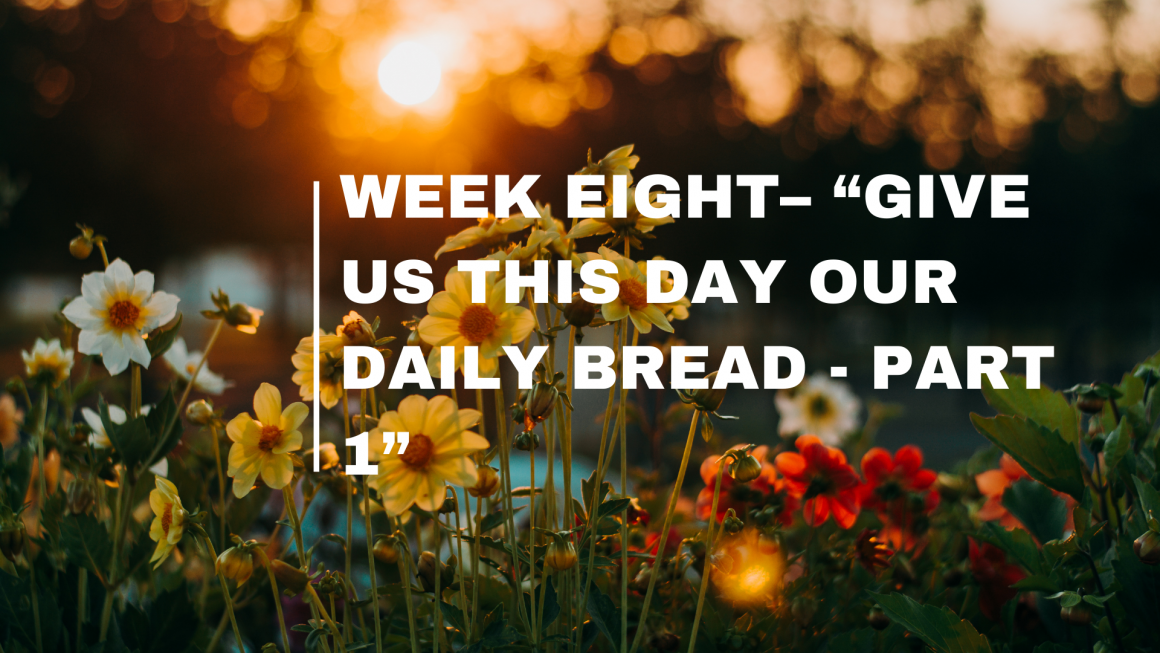(This article is adapted from a series of sharing on the subject of Prayer by Yew Lum to his Life Group members.)
At first glance, the fourth petition,“Give us our daily bread” doesn’t seem all that relatable. After all, in Malaysia most of us live in a society that’s fairly well off. While the on-going pandemic has affected all of us in varying degrees, not many in our church can claim they are living from hand to mouth or at a subsistence level. So, is this part of the Lord’s Prayer relevant to all or does this only apply to the poor and needy?
There are several important things we can learn from this petition.
Bread is the most basic of food and represents a staple in the diet of the people in Jesus’ day as it does in many cultures today. The prayer is not suggesting a loaf of bread per se but bread is representative of all the basic things we need like food, shelter and clothing that are necessary for our physical survival. It says, “Give us our daily bread and NOT our daily steaks”. It covers necessities and not always the luxuries. It ties in with what Jesus taught us about not being anxious in Matthew 6:25-26 where he says, “Therefore I tell you, do not worry about your life, what you will eat or drink; or about your body, what you will wear. Is not life more than food, and the body more than clothes?” And instead of worrying about these physical things, Jesus assured His disciples that “your heavenly Father knows that you need them all. But seek first the kingdom of God and all these things will be added to you.” We can therefore be confident that our Heavenly Father will graciously take care of all our physical need so we are free to focus on God’s kingdom.
- It says “Give us our daily bread and NOT our weekly or yearly bread!”. In this petition, God wants us to learn to trust Him for his provision day by day. In the wilderness, shortly after God had delivered the Israelites out of Egypt, the people started to grumble about not having enough food. God graciously provided bread for the Israelites in the daytime and quail meat at nightfall but ask them to gather only what they need for the day (Exodus 16). He gave explicit instructions for them to take what each family needs for that day and no more, not only to test the people if they would be obedient but to display His glory through His unwavering faithfulness (verse 6-7). To me, this prayer also reminds me that we ought to be contented with what we have. It should remind us of our utter dependence on Him for our daily needs (and not our wants).
- In our fallenness, it’s easy for men to feel that they are the masters of their own fate captured in the concept of the Self-Made man. Even for Christians, we are sometimes tempted to feel we are somehow responsible for the bounties we possess. Nothing can be further from the truth because God is ultimately the source of ALL the things we have. Therefore, this prayer teaches us to constantly acknowledge God as our provider and to be thankful. Just pause and think for a moment. Are we truly thankful to God for His provision or has the prayer we routinely utter before we eat become so mechanical it’s often meaningless? What about the ability to taste what we put into our mouth? Or do we frown and complain when what’s on the plate falls below our expectations? So let’s remember 1 Cor 10:31, “whether you eat or drink or whatever you do, do it all for the glory of God.”
- This prayer says “Give us…..” And not “ Give me”, reminding us that we are part of a community. In other words, we are not only to look at the needs of ourselves but also the needs of our brothers and sisters-in-Christ around us. It really compels us to act and ensure that we do not live in abundance while we know of a brother who do not have enough. This point should really be brought home to us during these uncertain times of the global Covid-19 Pandemic. When we pray to God to give, we are prompted to think of the plight of others we know who are in need.
- In meditating on this part of the Lord’s prayer, I can’t help but think of another famous Jesus’ saying when he quoted from Deut 8:3 (in Matthew 4:4) that “Man shall not live by bread alone but by every word that comes from the mouth of God” The Bible is spiritual nourishment just as bread is physical. Are we as concerned for our spiritual well-being which is eternal as we are of our bodies that are temporal? This is not to say that the physical is not important but we should always give each it’s due place in our lives.
- So as we can see, the 4th petition is something all Christian should be able to relate to. It teaches us to affirm God as the source of all our physical needs, to have confidence living one day at a time that He will always provide our basic needs and avail ourselves as agents of blessings to others who might have need!
Prayer:
Dear Heavenly Father, Give us our daily bread and teach us to understand and live out all that this prayer encompasses! Amen!


Leave a Reply